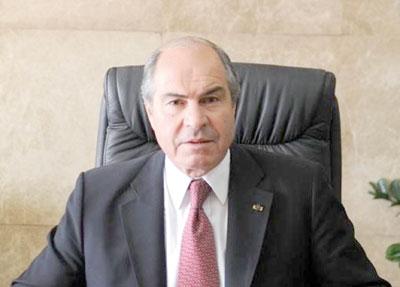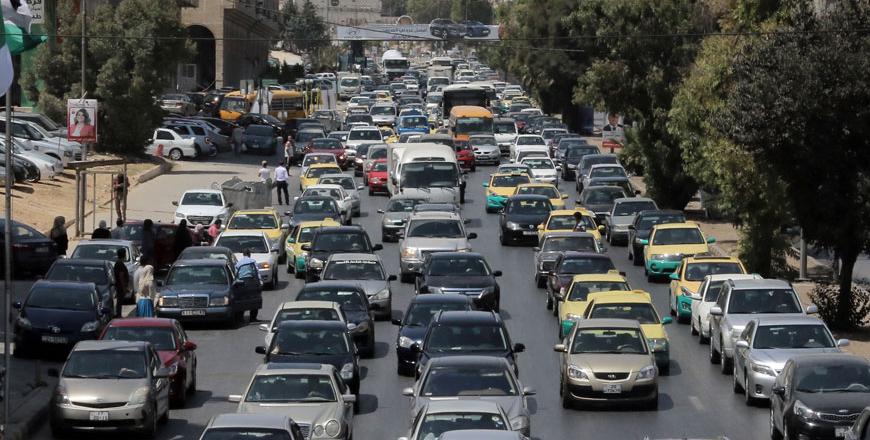You are here
Premier blames ‘populist policies’ for economic woes
By JT - Feb 14,2018 - Last updated at Feb 14,2018

Prime Minister Hani Mulki
AMMAN — Prime Minister Hani Mulki on Tuesday said that the country would have gone bankrupt had it not been for recent economic measures that saw subsidies lifted on several commodities and prices rise accordingly.
He told Jordan Television in an interview broadcast Tuesday evening that the measures froze the ratio of public debt to GDP at 94.4 per cent, while it would have jumped to 100 per cent in case of no action, calling on people to bear with the government to “protect the country and the future of its citizens”.
Noting that Jordan had been achieving GDP growth rates reaching up to 7 per cent up to 2008, the premier blamed populist policies and unwise public spending by previous governments for the decline in the economic performance, stressing that figures show that his government has made successes after it applied an austerity policy. He challenged his critics to prove the opposite.
Cuts in public spending have reached a point the government can not exceed, he said, explaining that 64 per cent of the budget is used to pay salaries and pensions.
He also blamed previous administrations for failure to curb consumerist behaviour of citizens.
Yet, the prime minister acknowledged that his government has failed in delivering the right massage to the public regarding the measures that were taken.
Out of the bottleneck
The premier told JTV that with corrective measures in place, the economy would “leave the bottleneck mid-2019”, noting that his government would take the responsibility for any setbacks in the policy it has applied, vowing improvement in the economic conditions of the middle class and a shrinking
low-income segment.
On expected positive developments, Mulki said that Jordanian trucks will as of next week start entering Iraq, calling for “patience, as we cannot reverse what has happened in 10 years in an overnight”.
Transportation: ‘mission nearly impossible’
On the transportation dilemma, the premier said that in 2005 and 2006, a solution to the problem was possible, but now it is “almost impossible”, citing the large number of cars on the streets. He said that the rise in the fees on hybrid cars was not meant to generate money, but to discourage import of vehicles, noting that it came as part of a 10-year plan towards that end.
He attributed the increasing number of cars in Jordan to the “consumerist culture”.
Gradual change — rather than tactical, quick solutions — will be introduced to address administrative issues, especially with regard to the demand to cancel or merge government agencies, he noted.
He said that although he cannot promise “milk and honey”, he and his team are ready to accept responsibility for the outcome of their performance by the end of the year.
Related Articles
Amman Mayor Aqel Biltaji on Monday said the cost of infrastructure projects needed in the capital is estimated at $1 billion.
AMMAN — The government will submit its policies and programmes to the Lower House to request its confidence at the start of the first ordina
AMMAN — Prime Minister Hani Mulki on Monday said that high ownership transfer fees only apply to cars with large engines, while the owners o
















